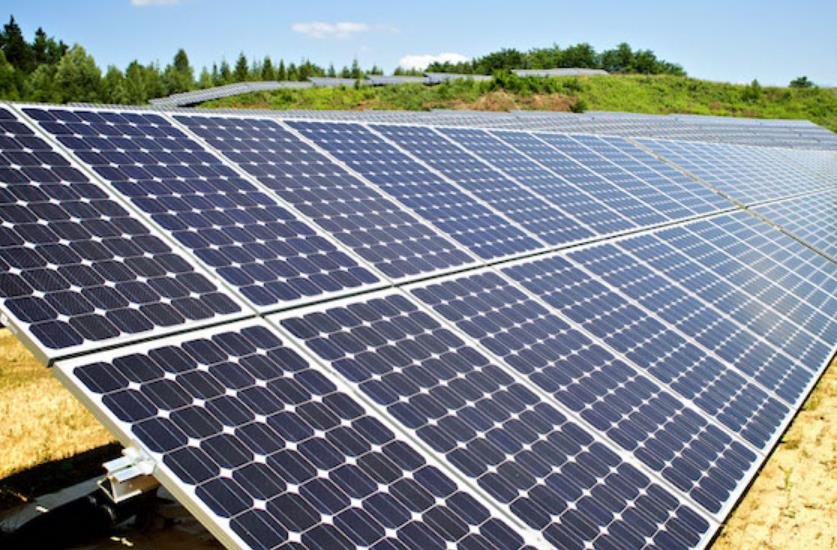ACWA Power, a Saudi-based company that specializes in renewable energy, has expressed its interest in developing a 600 MWp solar project in Pakistan, subject to certain conditions. The company has been in talks with the Pakistani government and K-Electric, the main power utility in Karachi, for the past several years. However, the investment has not materialized due to various obstacles on the Pakistani side, such as the absence of a bilateral framework agreement and tariff discovery for such a project.
According to a letter written by the Vice Chairman of ACWA Power, Raad Al-Saady, to the Pakistani ambassador in Riyadh, the company has five key requirements for improving the viability of its investment in Pakistan. These are:

- Bilateral G2G Framework: The company wants a project reference to an established bilateral agreement between Saudi Arabia and Pakistan, defining the terms and conditions of cooperation for enhancing investment feasibility and impact.
- Bankability of Project Agreements: The company wants financeable agreements (Power Purchase Agreement, Implementation Agreement, Site Lease Agreement, and Grid Connection Agreement) based on the “project finance” approach, which relies on a dedicated financial structure focused on project cash flows and assets rather than the general financial conditions of the company or the government.
- Sovereign Guarantee: The company wants an executable sovereign guarantee within the scope of financial support, performance guarantees, financial guarantees, and the ability to monetize them, trusted by potential stakeholders in the project, including lenders and investors.
- Site Allocation: The company wants the completion of the allocation, licensing, and settlement of the designated development sites under a financeable land lease agreement that provides the right to use the land for the development, operation, and decommissioning of the station.
- Integration Transmission Studies: The company wants integration studies with the national transmission network that confirms the availability of the necessary infrastructure for power evacuation.
Pakistani ambassador holds meetings with Saudi officials
The Pakistani ambassador, along with the Saudi ambassador to Pakistan, Nawaf Al Malki, held a meeting with the Chairman of ACWA Power, Mohammad Abunayyan, on October 23, 2023, to revive his interest in Pakistan and requested him to share specific details of requirements for investing in the renewable energy sector of the country. The letter from the Vice Chairman of ACWA Power was a response to this meeting.
The Pakistani ambassador also held two important meetings during the visit of the Energy minister to Riyadh on January 9-11, 2024, to participate in the Future Minerals Forum. The first meeting was with the Vice Chairman of ACWA Power, Raad Al-Saady; and the second meeting was with the Saudi Energy Minister, HRH Prince Abdulaziz bin Salman Al-Saud. The purpose of these meetings was to discuss the prospects of Saudi investment in Pakistan’s renewable energy sector and to address the issues raised by ACWA Power.
ACWA Power aims to support Pakistan’s energy transition
ACWA Power is one of the leading companies in the world in renewable energy, with a portfolio of over 62 GW of power generation and 5.9 million m3/day of desalinated water production across 13 countries. The company has a vision to deliver electricity and desalinated water at a low cost, thereby contributing to the social and economic development of the communities and countries it invests in.
The company has shown an interest in Pakistan’s renewable energy sector, as the country has a huge potential for solar and wind power generation. Pakistan has set a target of achieving 30% renewable energy share in its electricity mix by 2030, as part of its efforts to reduce greenhouse gas emissions and dependence on fossil fuels. ACWA Power has offered to provide low tariff for its solar project, which would help Pakistan achieve its renewable energy goals and reduce its power deficit.
The company has also invested in K-Electric, the main power utility in Karachi, which serves over 20 million people. The company has a 66.4% stake in K-Electric, along with the Abraaj Group and the International Finance Corporation. The company has been working to improve the efficiency and reliability of K-Electric’s operations and to expand its generation capacity.
Saudi-Pakistan relations expected to improve with investment
The investment by ACWA Power in Pakistan’s renewable energy sector is expected to boost the bilateral relations between Saudi Arabia and Pakistan, which have been strained in recent years due to differences over regional issues. The two countries have a long history of cooperation in various fields, such as trade, defense, security, culture, and religion. Saudi Arabia is also one of the largest sources of remittances for Pakistan, with over two million Pakistani workers living in the kingdom.
The investment by ACWA Power is part of the Saudi Vision 2030, which aims to diversify the kingdom’s economy and reduce its dependence on oil. The vision also includes enhancing the kingdom’s role as a global leader in renewable energy and a hub for innovation and technology. The kingdom has pledged to invest $20 billion in Pakistan as part of its vision, covering various sectors such as energy, minerals, petrochemicals, agriculture, and infrastructure.
The investment by ACWA Power is also in line with the Pakistan Vision 2025, which aims to transform the country into a modern and prosperous nation, with a focus on human development, economic growth, social justice, and environmental sustainability. The vision also includes increasing the share of renewable energy in the country’s electricity mix, enhancing energy security, and promoting regional connectivity and cooperation.
The investment by ACWA Power is expected to create jobs, generate revenue, and improve the quality of life for the people of Pakistan, especially in the areas where the solar project will be developed. The investment is also expected to strengthen the ties between the two countries and enhance their strategic partnership for mutual benefit and regional stability.
